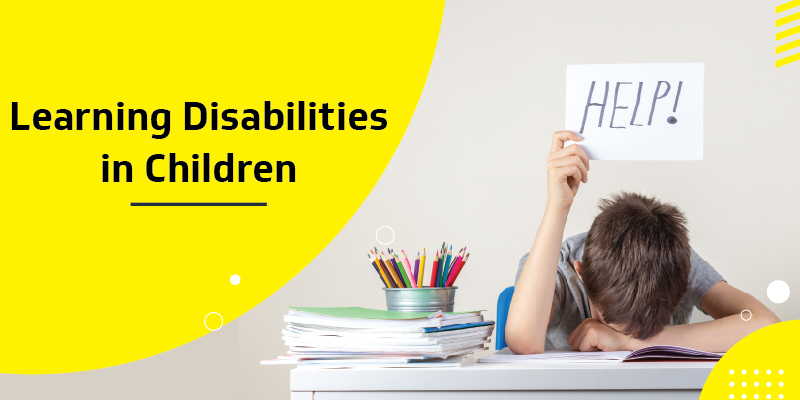Understanding the Connection Between Brain Function and Learning
The human brain is a complex organ responsible for processing information, memory retention, and cognitive development. When neurological health is compromised, it can significantly impact a child’s ability to learn, retain information, and adapt to new concepts. Therefore, various neurological conditions can contribute to Learning Difficulties in Children, making early diagnosis and intervention essential.
Common Neurological Factors Affecting Learning
Several neurological conditions influence how children learn and process information. Thus, understanding these factors can help educators, parents, and healthcare professionals support children more effectively. Some common neurological conditions associated with Learning Difficulties include:
- Attention Deficit Hyperactivity Disorder (ADHD): Affects focus, impulse control, and attention span.
- Dyslexia: This impacts reading and writing skills, making it difficult to recognize words and comprehend text.
- Autism Spectrum Disorder (ASD): This can lead to challenges in communication, social interaction, and repetitive behaviors.
- Sensory Processing Disorders: Affects how children respond to sensory stimuli, leading to distractions and difficulty concentrating.
- Cerebral Palsy: May cause motor coordination difficulties, affecting handwriting and overall learning abilities.
Since each of these conditions affects brain function differently, they all contribute to Learning Difficulties in Children in various ways.
The Role of Early Diagnosis and Intervention
Recognizing Learning Difficulties in Children early can make a significant difference in their academic journey. When parents and educators notice delays in speech, difficulty in following instructions, or struggles with reading and writing, seeking a neurological evaluation is essential. Furthermore, early intervention can help children develop strategies to navigate their challenges more effectively.
Steps for Early Intervention:
- Observing Early Signs: Paying close attention to how children interact, speak, and respond to educational activities.
- Consulting Specialists: Pediatric neurologists, psychologists, and learning specialists can thoroughly assess cognitive development.
- Implementing Support Strategies: Creating personalized learning plans tailored to a child’s specific needs can improve outcomes.
- Encouraging Multisensory Learning: Engaging children through auditory, visual, and hands-on activities can significantly enhance their comprehension.
How Brain Development Affects Learning
The brain undergoes rapid development during childhood, forming critical connections that impact learning and behavior. As a result, neural pathways determine how well a child can retain information, focus, and problem-solve. When these pathways do not develop properly, children may experience Learning Difficulties, requiring additional support.
Key brain functions that influence learning include:
- Memory Retention: The ability to store and retrieve information efficiently.
- Executive Functioning: Skills like organization, planning, and task management that contribute to learning success.
- Language Processing: Understanding and using language effectively to communicate and learn.
- Motor Skills: Fine and gross motor coordination that affects writing and other physical activities essential for learning.
By nurturing brain development through proper nutrition, cognitive exercises, and supportive learning environments, children with Learning Difficulties can improve their capabilities and thrive academically.
The Impact of Neurological Treatments on Learning
Advancements in child neurology have led to improved diagnosis and treatment methods for children facing learning challenges. In places like child neurology Dubai, specialists use innovative techniques to assess and manage neurological conditions affecting academic performance. Therefore, seeking professional help early can enhance a child’s learning potential.
Effective Treatment Options:
- Therapy-Based Interventions: Speech therapy, occupational therapy, and behavioral therapy can address specific learning needs.
- Medications: In cases of ADHD or other conditions, prescribed medications may help improve focus and impulse control.
- Cognitive Training Programs: Designed to strengthen memory, attention, and problem-solving abilities, these programs are highly beneficial.
- Specialized Educational Support: Tailored teaching methods help children learn in ways best suited to their neurological makeup, ensuring better academic progress.
Building a Supportive Learning Environment
Children with Learning Difficulties thrive in structured and encouraging environments. Thus, educators and parents play a crucial role in creating an inclusive atmosphere that caters to diverse learning needs.
Tips for a Supportive Learning Environment:
- Use Visual Aids: Diagrams, charts, and videos enhance understanding and make learning more engaging.
- Incorporate Technology: Educational apps and assistive tools improve engagement and provide additional learning support.
- Encourage Interactive Learning: Group discussions and hands-on activities make lessons more effective and enjoyable.
- Provide Emotional Support: Encouragement and patience boost confidence and motivation, helping children feel more capable.
The Future of Learning Support for Neurological Challenges
As research continues to evolve, better diagnostic tools and treatment options are emerging to address Learning Difficulties in Children. Furthermore, schools and healthcare institutions are integrating neurodevelopmental assessments into their frameworks, ensuring that children receive the necessary support.
Additionally, awareness campaigns are helping reduce the stigma around Learning Difficulties, encouraging parents to seek help without hesitation. With the right interventions, children facing these challenges can reach their full potential and excel academically.
Conclusion
The link between neurological health and Learning Difficulties in Children is undeniable. Since understanding how the brain functions affects learning can help educators, parents, and specialists develop strategies to support struggling students, it is crucial to remain informed. With early diagnosis, personalized interventions, and an encouraging learning environment, children can overcome challenges and succeed in their education.
Institutions like Child Neurology Dubai are making significant strides in offering specialized care, ensuring that children with neurodevelopmental disorders receive the attention they need to thrive.



